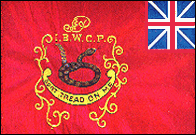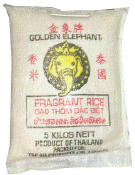The ravings of Hong Kong's most obnoxious expat
29 September- 5 October, 2002



Cries of "bring out your dead" ring out through the streets of Ma Wan and parts of western Kowloon, as the number of fatalities from Hong Kong's dengue fever epidemic reaches into the thousands. The government is doing an uncharacteristically professional job of keeping the truth from the outside world – the international media are faithfully swallowing the official line that half a dozen construction workers have felt a little poorly as a result of the tropical scourge. Since only the easily-replaced and inconsequential ever visit the affected districts, it is not hard to keep the death toll out of the press for the time being. Even the nearby reclaimed land is ideal for mass-graves. But what happens when rich, well-connected guests at the Mandarin Hotel start collapsing to the floor in the Captain's Bar, haemorrhaging green pus through the eyes? Dengue fever is nature's way of saying, "You've been letting mosquitoes breed again, haven't you? – indulging in facile publicity campaigns instead of making the effort to do something practical about the problem."

National Day. The 53rd anniversary of the People's Republic of China. Attend a tedious reception on behalf of the Big Boss, who has flown to a grubby place in Southeast Asia to investigate the possibility of acquiring the world's largest manufacturer of durian-flavoured chewing gum. I am approached by a keen-looking Mainland official. "So, what do you think has been the Communist Party's greatest achievement?" he asks. I think carefully. "Adding an extra week to the third month of the year," I tell him. He looks perplexed. "You know – the 'Long March'," I remind him. "That was quite a good idea." He swiftly moves on to another victim.




Wake up next to a Japanese office lady found last night on the Mid-Levels escalator in a confused state after becoming separated from her tour group. Intimidated by the crowds of boisterous, holidaying Hongkongers, Filipinas and Westerners, and alarmed by the fireworks, she was immensely grateful for an offer of shelter in Perpetual Opulence Mansions. "I am roomy," she announced. I am not often at a loss for words, but what does one say? Not a problem, I assured her. Lacking much in the way of a common language, we drank some retsina and perused my collection of art books. She was disappointingly uninterested in Ukiyo-e, (floating world) prints, but surprisingly keen on the hilarious Jeff Koons. I should imagine he does well in Japan.
All becomes clear this morning when she jots down her contact details in Nagoya. Rumi. It's her name.

The long overdue crackdown on Cantopop has begun, with the unspeakably untalented crooner Nicholas Tse waking up this morning chained to the cold, damp walls of a dungeon, with the wails of his mother as he was dragged from the court still ringing in his ears. Technically, he was found guilty of getting his driver to take his place in March after he crashed his Ferrari on Cotton Tree Drive in Central (Tse crashed a BMW a few months later, and has been picking up speeding tickets at an impressive rate). His real crime, however, was to think that getting rich from being a Cantopop star puts him above the law. It does not. If it had been real estate development, textiles, money laundering in Cambodia, or – best of all – an inheritance, that would be different. But Cantopop stars are simply the opiate of the masses awaiting resettlement in the Mainland. Their job is to churn out vacuous pap to sedate the underclass, endorse junk food, and visit a few kids in hospital to atone for Ecstacy busts in Taipei. They are not One Of Us.
Had a slightly disturbing though not totally disagreeable dream, in which I was on the receiving end of an indecent suggestion, followed by an unambiguous gesture, from our resolute Secretary for Security Regina Ip while we were in the back seat of her car, which was surrounded by angry protestors. I put it down to my supper of Roquefort and Sauternes, plus the fact that I dispensed with air conditioning for the first time last night.
Is Seven-Eleven about to grab the Hemlock Award for Inducing Old People to Stand in Line for Long Periods of Time for Very Little Gain? The current holders of the title, a demented Buddhist charity that thinks Hong Kong is still in the 1940s and is inundated with starving refugees, hands out 5-kilogram bags of rice worth HK$43 every summer. Not content with having the world's second-highest life expectancy, our grasping octogenarian malcontents queue for 10 hours in the blazing sun to get their grubby, bony little paws on the freebies – a dollars-to-hours spent waiting ratio of 4.3:1. (The judges award extra marks for giving people of such advanced years an 11 lb sack to lug back home in the heat and humidity.) The Buddhists easily beat the government's free dental clinics, which offer 1950s-era treatment averaging HK$200 in value for a mere five-hour wait – a dismal ratio of 40:1 and a typical example of public-sector waste. But now, Seven-Eleven is offering free samples of their lunch boxes, which will soon go on sale for HK$10. With sour-faced senior citizens turning up more than four hours early, that's a world-beating ratio of 2.5:1 – a credit to private-sector ingenuity and efficiency.
It was only a matter of time. Frank Yu unearths an academic thesis on Hong Kong's trendy SoHo neighbourhood. It is riddled with factual errors and quotes Marx and Engels. "The first question we need to ask," writes Siu Heng, the author, "is: how do we re-articulate SoHo's everyday history?" Actually, a more pressing question is, "Did taxpayer's money fund this pretentious tripe?"


